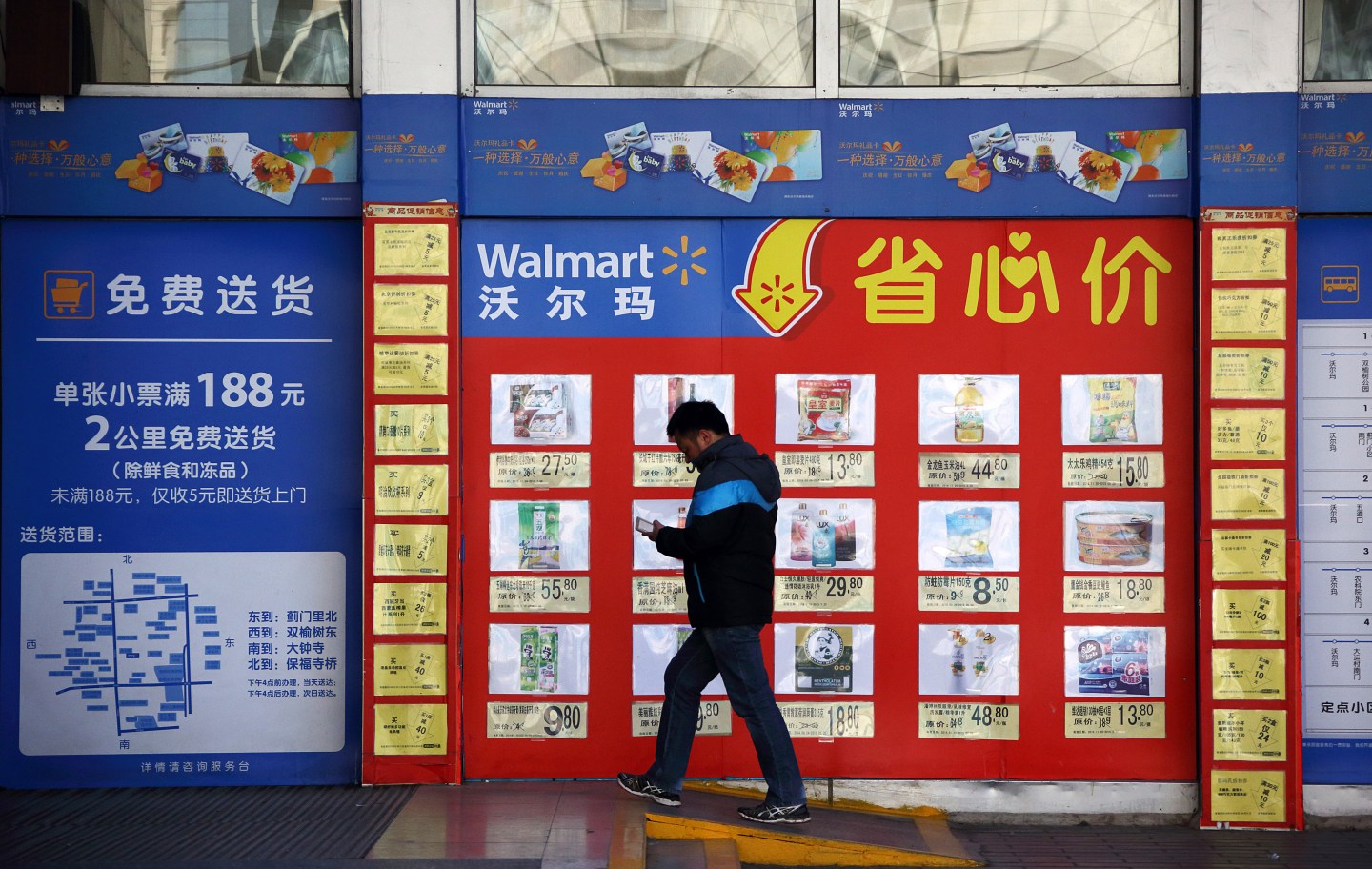It took four years, but Wal-Mart has finally fully gobbled up Chinese e-commerce company Yihaodian.
The world’s largest retailer on Thursday said it acquired the final outstanding shares of Yihaodian, taking full ownership of the company after an initial investment began back in 2011. Wal-Mart (WMT) had previously boosted its stake in the company in 2012, when it took a 51% majority control position. Terms of the latest acquisition weren’t disclosed.
“Yihaodian has excelled as one of China’s top e-commerce businesses,” said Neil Ashe, president and CEO of Wal-Mart Global eCommerce. He said the investment is part of Wal-Mart’s “long-term commitment to grow in China.”
With full ownership of Yihaodian, Wal-Mart plans to invest in both accelerating e-commerce and also an easier experience for customers to shop online, via mobile and in brick and mortar stores. Yihaodian, which was founded in 2008, will continue to operate under its existing name.
Wal-Mart touted the Chinese company’s swelling business: it now stocks 8 million product items and serves 100 million registered customers. Those figures are up from 50,000 and 4 million, respectively, back in 2010.
The Chinese e-commerce market has huge potential for global retailers such as Wal-Mart, as well as home-grown competitors. Total online retail spending in China was projected at $307 billion in 2013, and Forrester Research has estimated it should exceed $1 trillion by 2019.












